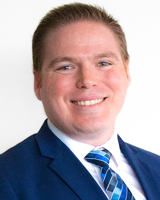Stanford clinic aims to help 'COVID long-haulers' through symptoms months after diagnosis

ATHERTON, Calif. (KGO) -- As California celebrates one week of reopening after the COVID-19 lockdown, not all can enjoy the benefits.
Some are still feeling the grave impacts of the coronavirus.
"I've told my family that I feel like I'm slowly dying," Brandie Parshall said. "My body just feels like no energy. It feels like the life has been sucked out of me."
RELATED: Look inside Stanford's study on COVID-19 'long-haulers'
The life Brandie Parshall knew before her COVID-19 diagnosis in December 2020 was just like anyone else.
Her life now?
The mother of four says she can't eat, sleep or work due to fatigue. She also experiences high heart rates after normal activities and debilitating brain fog- all common symptoms of post-acute COVID-19 syndrome.
She continues to suffer six months after diagnosis, something 30 to 60% of COVID-19 patients have to endure.
RELATED: Stanford study of long-haul COVID-19 patients finds common symptoms
"Some have called it a shadow pandemic," Dr. Linda Geng said. "The COVID pandemic has been devastating enough globally, but now we're having to deal with the long-term consequences that it's leaving in its wake."
For long-term COVID-19 patients like Parshall, help and support are very much needed. Clinics like the one through Stanford Health Care help those who are in it for the long haul.
"We recognize how difficult, challenging and a big problem this is," Stanford University Clinical Asst. Professor Dr. Geng said. "It's not just our center, all across the country centers have popped up because we recognize the need to advance the care and advance our knowledge and urgency. Hopefully we'll be able to provide that for some of those individuals here in California."
RELATED: Post COVID-19 brain-related symptoms may be common, UCSF study indicates
Thirty-two patients have been treated at this clinic in the past few months.
Stanford University Associate Professor of Medicine and Infectious Diseases, Dr. Hector Bonilla, says the work he and his colleagues have done with chronic fatigue syndrome has helped them develop a care plan to make sure this issue does not persist down the road.
"We invest now in the care, invest in the research and understand the therapeutics," Dr. Bonilla said. "If we keep on doing nothing, the problem will keep on going on."
"People don't realize what this can do to you and how much this is a life-changer," Parshall said. "If I could go back and change what I did, being around people, even though it was my close family, if I knew now, I would've taken it more serious."
VACCINE TRACKER: How California is doing, when you can get a coronavirus vaccine
Having trouble loading the tracker above? Click here to open it in a new window.
RELATED STORIES & VIDEOS:
- Everything to know about California's June 15 reopening
- Where you still have to wear a mask when CA reopens on June 15
- Poll: What do you think about California's June 15 reopening?
- Cheat sheet: What you can and can't do after being fully vaccinated
- COVID-19 vaccine: Everything to know about your 2nd Pfizer or Moderna shot
- CA COVID-19 Vaccine Tracker: See your status here
- These CA counties are way ahead in vaccinations
- How to register for a COVID-19 vaccine in every Bay Area county
- Map shows everywhere you can get a COVID-19 test in the Bay Area
- Data tracker: Coronavirus cases, deaths, hospitalizations in every Bay Area county
- Get the latest updates on California EDD, stimulus checks, unemployment benefits
- Coronavirus origin: Where did COVID-19 come from?
- What is a COVID-19 genetic, antigen and antibody test?
- What does COVID-19 do to your body and why does it spread so easily?
- Coronavirus Timeline: Tracking major moments of COVID-19 pandemic in San Francisco Bay Area













